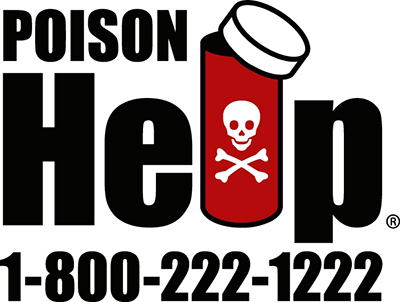Poison Center Achieves Reaccreditation
 The Texas Panhandle Poison Center (TPPC), hosted by the Texas Tech University Health Sciences Center School of Pharmacy in Amarillo, has achieved reaccreditation through 2023 from the American Association
of Poison Control Centers (AAPCC).
The Texas Panhandle Poison Center (TPPC), hosted by the Texas Tech University Health Sciences Center School of Pharmacy in Amarillo, has achieved reaccreditation through 2023 from the American Association
of Poison Control Centers (AAPCC).
TPPC, which also undergoes annual compliance reviews, is required to go through reaccreditation every seven years to ensure it provides quality services and to secure federal funding. To achieve reaccreditation, TPPC and all other poison centers undertake an extensive peer-review process that includes a review of policies, procedures, call management efforts to educate the public and health care providers, in the context of nationally recognized standards for poison control centers.
According to AAPCC, the primary functions of a poison control center are to enhance the health of the lay public by assessing exposures and providing timely information, including referral to health care facilities when indicated; and to enhance the care of poisoned patients by providing timely information on diagnosis and treatment to health care professionals.
“For severe and unusual poisonings, poison centers serve as a free resource to both the public and health care providers,” TPPC Medical Director Thomas Martin, M.D, said. “Also, physicians who are managing poison cases may consult with board-certified medical toxicologists by using poison center services.”
TPPC Managing Director Jeanie Jaramillo-Stametz, Pharm.D, said Texas poison centers
save the public, insurers and other payers millions of dollars each year by providing
assistance over the phone and preventing unnecessary emergency room visits.
“There are types of poison exposures in which a patient needs to go to the emergency room, but with a majority of poisonings, our trained medical staff can manage patients at home without the expense of going to an emergency room,” Jaramillo-Stametz said.
Visit TPPC's website for more information.
Related Stories
Celebrating Veterans: TTUHSC’s General Martin Clay’s Legacy of Service and Leadership
From his initial enlistment in the Army National Guard 36 years ago to his leadership in military and civilian health care management roles, Major General Martin Clay’s career has been shaped by adaptability, mission focus and service to others.
Texas Tech University Health Sciences Center School of Nursing Named Best Accelerated Bachelor of Science in Nursing Program in Texas
The TTUHSC School of Nursing Accelerated Bachelor of Science in Nursing (BSN) program has been ranked the No. 1 accelerated nursing program in Texas by RegisteredNursing.org.
TTUHSC Names New Regional Dean for the School of Nursing
Louise Rice, DNP, RN, has been named regional dean of the TTUHSC School of Nursing on the Amarillo campus.
Recent Stories
National Academy of Inventors Names TTUHSC Faculty Senior Members
The National Academy of Inventors (NAI) has designated two current and one former TTUHSC faculty researchers as Senior Members.
The John Wayne Cancer Foundation Surgical Oncology Fellowship Program at Texas Tech University Health Sciences Center Announced
TTUHSC is collaborating with the John Wayne Cancer Foundation and has established the Big Cure Endowment, which supports the university’s efforts to reduce cancer incidence and increase survivability of people in rural and underserved areas.
TTUHSC Receives $1 Million Gift from Amarillo National Bank to Expand and Enhance Pediatric Care in the Panhandle
TTUHSC School of Medicine leaders accepted a $1 million philanthropic gift from Amarillo National Bank on Tuesday (Feb. 10), marking a transformational investment in pediatric care for the Texas Panhandle.

